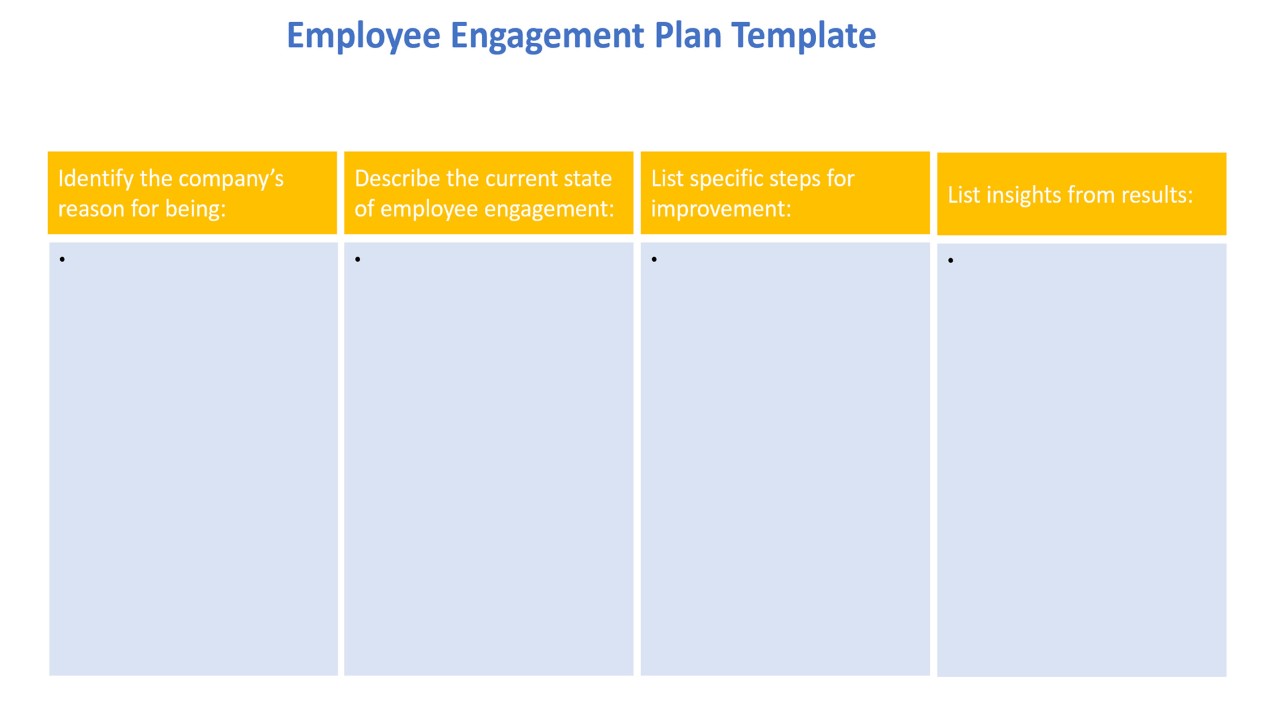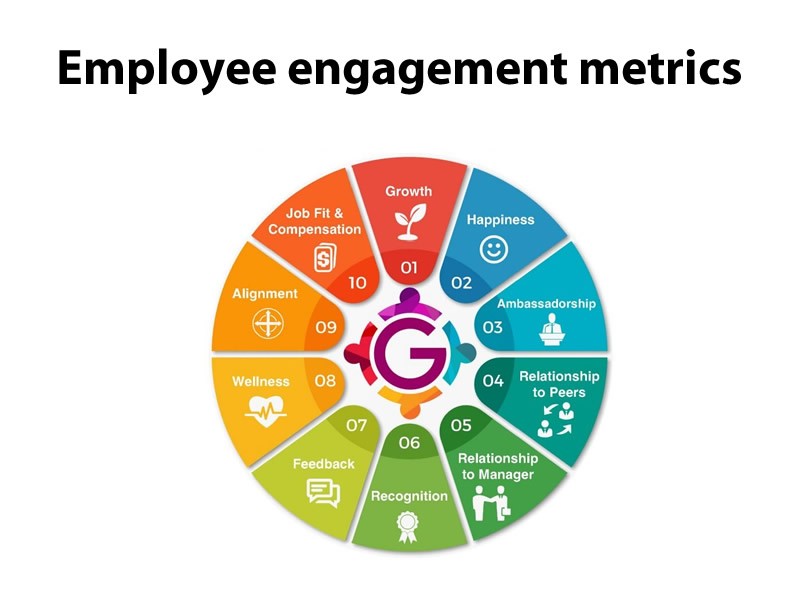Insight Blog
Agility’s perspectives on transforming the employee's experience throughout remote transformation using connected enterprise tools.
6 minutes reading time
(1175 words)
Employee Engagement Strategy For 2024 [Examples Included]
Since the 1990s, research after study has shown that putting effort into employee engagement strategies pays off in measurable ways.
Employee engagement is a multibillion-dollar industry. Businesses invest a significant amount of effort and money in developing effective engagement initiatives. And it's not without cause. Since the 1990s, research after study has shown that putting effort into employee engagement strategies pays off in measurable ways. Employees that are disengaged, on the other hand, maybe tremendously harmful to a company. Low engagement levels, according to Gallup, result in 37 percent more absenteeism, 18 percent poorer productivity, and 15% lower profitability.
Employee engagement strategy examples
Employee engagement is a multibillion-dollar industry. Businesses invest a significant amount of effort and money in developing effective engagement initiatives. And it's not without cause. Since the 1990s, research after study has shown that putting effort into employee engagement strategies pays off in measurable ways. Employees that are disengaged, on the other hand, maybe tremendously harmful to a company. Low engagement levels, according to Gallup, result in 37 percent more absenteeism, 18 percent poorer productivity, and 15% lower profitability.
Employee engagement strategy plan
Employee engagement is more than just a fad. More and more businesses realize that it takes more than a fantastic product or concept to develop a successful business: it takes people who are ready to work hard alongside you to make it a success. And those individuals want more than just a paycheck and a Ping-Pong table in the break room.
The right person in the appropriate job
Every employment has its own set of requirements—a collection of everyday chores and obligations that are unique to the function. When an employee understands what is expected of them, it indicates that the work is a good fit for their personality. Assume the position is one of the outbound sales. Day-to-day tasks are likely to include starting up discussions with strangers, persuading them to buy something, and coping with a significant amount of rejection. As a result, someone who is extroverted, persuasive, and comfortable with risk could be the best candidate for the job.
When an employee isn't naturally fit for a position, they must expand their behavioral boundaries. While it is possible, it is akin to trying to fit a round peg into a square hole and failing.
Maintaining good overall management
Everyone has dealt with a "poor" boss at some point in their career. A poor experience, on the other hand, is frequently the outcome of opposing behavioral impulses and requirements. A manager, like every other employee in a business, has their own set of behavioral patterns. Some executives seek variation and frequent change, while others favor consistency. Some people like to make judgments based on facts and data, while others want to act on a larger scale.
Consider a manager who is guiding a direct report which is the polar opposite of them in terms of conduct. The supervisor is very detail-oriented and has a tendency to micromanage. The employee, on the other hand, prefers working alone and becomes uneasy or defensive when their work is scrutinized.
A team that is dedicated and hardworking
Poor team dynamics, like a terrible manager-employee relationship, may sink a productive ship. A team's cohesiveness is only as strong as its individual members. You'll want to collect big-thinkers that appreciate working at a quick pace if you want to develop an agile team focused on innovation. If you want to emphasize procedure and precision, on the other hand, your team should mostly be made up of detail-oriented, methodical workers.
An alternative viewpoint isn't always a negative thing on these teams. In many circumstances, having a diverse group of people adds to the team's overall balance. There are, however, instances where people may feel out of place or have difficulty adjusting to a new setting.
Good company culture
The unique beliefs and actions that are rewarded on a regular basis make up organizational culture. To put it another way, it's how companies urge their staff to behave in a specific manner. A corporation that focuses on innovation, for example, may have an organizational culture that encourages flexibility and the exploration of novel ideas. The organization may host frequent product development meetings and brainstorming sessions to foster this behavior. It may also buy whiteboards for its workplaces and creative software for its workers.
When a company's culture is so engrained, it might be difficult for someone who does not fit that way of life to fit in. This might be due to a fundamental difference in the person's behavioral nature versus the sort of conduct that the firm encourages. It might also be due to a misalignment of personal and corporate beliefs or simply a hostile or unsafe work environment.
Employee engagement action plan examples
You will not find one solution, and there is no one-size-fits-all approach to employee engagement. You may create a custom engagement plan by using information about the organization, the workforce, and the business environment. The best outcomes will always come from a customized strategy. Employee engagement and motivation are driven by a variety of factors, and engagement solutions must respond to these differences. A voluntary employee engagement movement in the United Kingdom, businesses should develop activities that concentrate on people and teams.
Employee engagement metrics
Employee engagement measures are critical because they allow HR professionals to keep information about how connected, devoted, and motivated their employees are under wraps. Employees that are emotionally invested in their team and the company's vision and goals provide value to their job and to the entire business. Employee engagement has never been more important than it is now, with the COVID-19 epidemic turning the globe upside down.
- Growth
- Happiness
- Ambassadorship
- Relationship to Peers
- Relationship to Manager
- Recognition
- Feedback
- Wellness
- Alignment
- Job Fit & Compensation
Other to consider:
- Employee tenacity
- Absenteeism
- Potential for promotion
- Employee turnover high
- Boost staff motivation
Increase employee engagement
It might be difficult to define what your company stands for and what values your staff should exemplify. Once formed; however, these bring disparate personnel and teams together as a cohesive front - even in times of crisis. A basic list of traits or a more thorough declaration might be used as your value statement.
When it comes to technology, now is the moment for businesses to think beyond the box and use intranet software. If employees are so devoted to getting online and utilizing social media, there should be a method for their employers to use this devotion in their 'inform and engage' efforts. While face-to-face working connections are still crucial, if internet pathways are made available to remote workers, executing on the part of a company's LAN will be significantly faster.
Categories
Blog
(2698)
Business Management
(331)
Employee Engagement
(213)
Digital Transformation
(182)
Growth
(122)
Intranets
(120)
Remote Work
(61)
Sales
(48)
Collaboration
(41)
Culture
(29)
Project management
(29)
Customer Experience
(26)
Knowledge Management
(21)
Leadership
(20)
Comparisons
(8)
News
(1)
Ready to learn more? 👍
One platform to optimize, manage and track all of your teams. Your new digital workplace is a click away. 🚀
Free for 14 days, no credit card required.

![Employee Engagement Strategy For 2021 [Examples Included]](http://agilityportal.io/images/easyblog_articles/156/b2ap3_large_Employee-Engagement-Strategy-For-2021-Examples-Included.jpg)













![Follow Google News Employee Engagement Strategy For 2024 [Examples Included] - Insight Blog](/images/Follow Google News.png)
![rss-subscribe Employee Engagement Strategy For 2024 [Examples Included] - Insight Blog](/images/rss-subscribe.png)